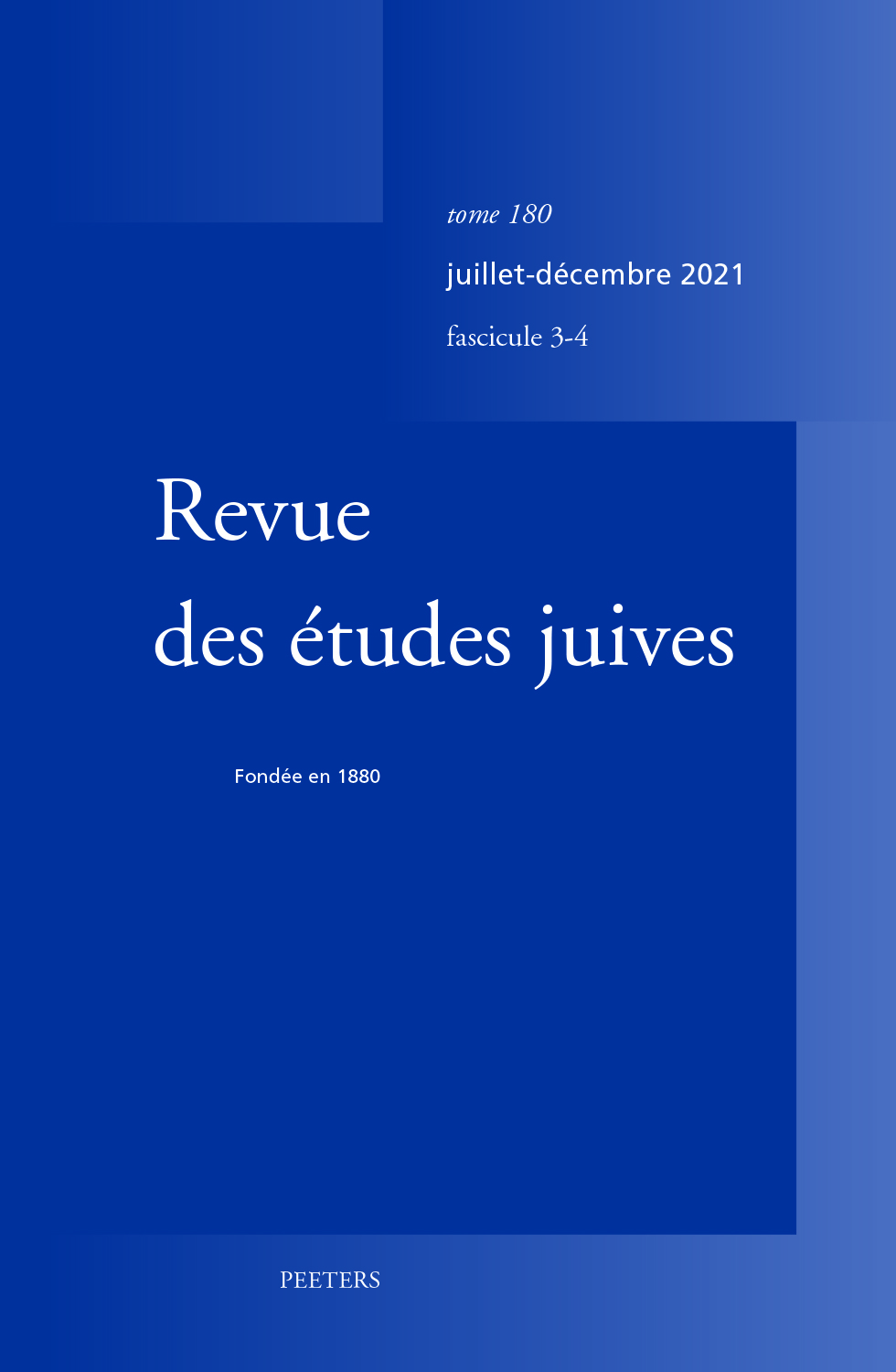 previous article in this issue previous article in this issue | next article in this issue  |

|
Document Details : Title: In hebraeo habetur: The Hebrew Biblical Text in the Literal Commentary of Nicholas of Lyra on the Book of Lamentations Author(s): GEIGER, Ari Journal: Revue des Études Juives Volume: 166 Issue: 1-2 Date: janvier-juin 2007 Pages: 147-173 DOI: 10.2143/REJ.166.1.2020280 Abstract : La Postilla Literalis du grand exégète franciscain français Nicolas de Lyre (1270-1349) est le commentaire littéral médiéval de la Bible le plus célèbre. Nicolas de Lyre est connu pour l’usage fréquent qu’il faisait du texte hébraïque de la Bible, ainsi que de traditions et commentaires juifs. Il considérait le texte hébreu comme plus sûr que celui de la Vulgate de son temps, à l'exception notable toutefois des versets vétéro-testamentaires pour lesquels la théologie chrétienne offrait une interprétation christologique. De ce fait, il accordait au texte hébreu la préséance sur la Vulgate et, à l'occasion, interprétait en conséquence. Cette étude de la Postilla du Livre des Lamentations montre que, lorsqu'il corrige le texte latin, Nicolas ne réussit qu’imparfaitement à discerner le véritable texte hébraïque. La moitié environ de ses corrections reproduisent une version qui reflète une explication juive courante plutôt que le texte hébreu lui-même. Il commet parfois de graves erreurs en voulant corriger le texte latin, ce qui manifeste sa méconnaissance de l'hébreu. Souvent, Nicolas de Lyre sait qu'il existe une divergence entre le texte hébraïque de la Bible et la tradition textuelle de la Bible chrétienne, mais dans nombre de cas, il ignore cette divergence, quelque significative qu'elle soit. Il semble donc que Nicolas de Lyre n'ait pas disposé des qualifications requises pour étudier les sources hébraïques par lui-même. Il dut avoir recours à un juif ou à converti, soit pour l’aider à lire le texte hébraïque, soit pour l'instruire oralement. The literal commentary on the whole Bible, the Postilla Literalis of the French Franciscan scholar Nicholas of Lyra (1270-1349), is well known for its frequent use of Jewish sources, namely Hebrew versions of the biblical text, Jewish interpretations and traditions. Nicholas considered the Hebrew text as more reliable than that of the contemporary Vulgate. This, with the important exception of Old Testament verses which were christologically interpreted in Christian theology. Moreover, he gave precedence to the Hebrew biblical text over the Vulgate, and occasionally interpreted accordingly. The present research on the Postilla on Lamentations shows that while correcting the Latin text of the Bible, Nicholas was only partially successful in acknowledging the correct Hebrew text. In about half of these emendations he presents a version which reflects some widely known Jewish explanation instead of the Hebrew text itself. Sometimes he makes severe mistakes in the process of emending the Latin text, thus revealing his misunderstanding of Hebrew. Although Nicholas is often aware of the difference between the Hebrew and Christian textual tradition of the Bible, yet we find many occurrences where he ignores that difference, however significant. Thus it seems that this great exegete did not have sufficient qualifications for learning Hebrew sources, and he had to be assisted by an expert in the Jewish tradition, whether a Jew or a convert, who either helped him out with his reading from the Hebrew Bible or instructed him orally. |
|
